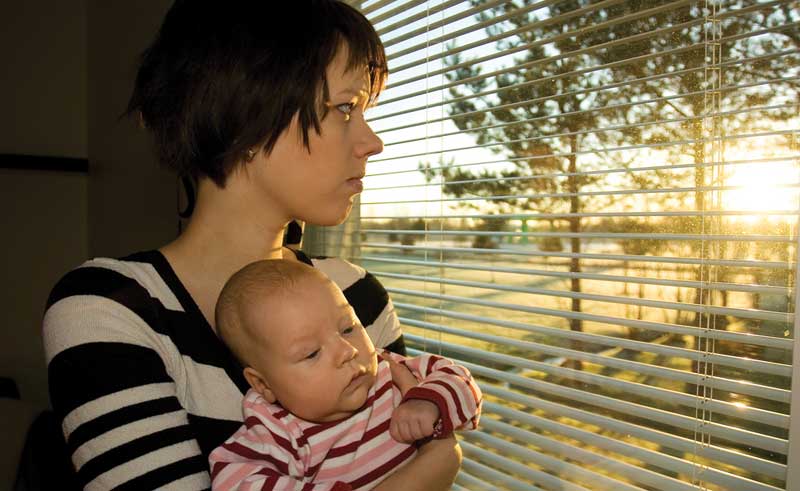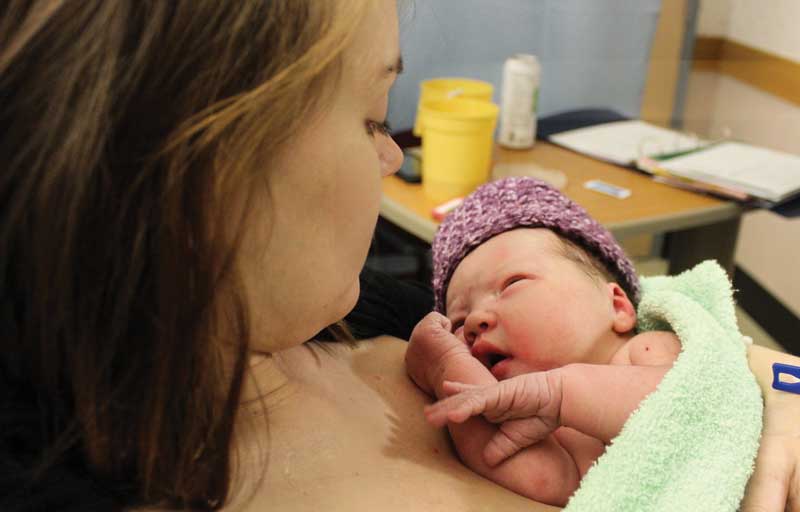Health First Obstetricians Addressing Mental Health – During and After Pregnancy
By Space Coast Daily // October 3, 2022
HEALTH & MEDICINE EVENT SPOTLIGHT

At Health First, supporting new moms’ mental health is part of the overall care process.
BREVARD COUNTY, FLORIDA – Pregnancy is perhaps one of the biggest life events. Unlike moving or marrying, it carries tremendous physical and emotional changes for women.
Health First Obstetrician Christina Jackson, MD, should know – she’s the mother of four. She says the “usual” feelings ascribed to expectant and new mothers – joy, contentment, fulfillment and unconditional love – represent the happy end of the spectrum.
“Sometimes mothers are not well-supported. Some have their own health issues going on. There might also be psychosocial issues, or economic issues, that make it an actual hardship,” Dr. Jackson says. “That can really change it from joyous, as we’d like to picture it, to a real struggle to be positive about things.”
Health First obstetricians screen for mental health warning signals each trimester (every three months) – and again after birth. At the Gateway and Bayside Lakes offices, a new Onsite Collaborative Care program supports OBs by providing sessions with licensed counselors with treatment review by a consulting psychiatrist – in person or by Virtual Visit.
Health First patients at other OB clinics have Mindoula Virtual Collaborative Care services available to them.

‘Not Just Routine Mood Swings’
In Dr. Jackson’s practice, the mental health piece is front and center.
“Sometimes you can further hone a conversation to explore, is this anxiety that might be pathologic? Or, is there some depression, not just routine mood swings around not having as much control over our body as we’re used to.”
Recently, a national hotline for maternal mental health was set up: 833-9-HELP4MOMS. Depression lowers the likelihood a patient seeks healthcare, and postpartum, it carries risks for mother-and-baby attachment.
Sleep Disturbances
Along with hormonal and other physical changes, pregnancy compromises sleep quality in a way that raises sensitivity to mood disorders, depression, anxiety and other mental health conditions – and it typically doesn’t improve with a newborn.
After birth, women who suffered pre-eclampsia and some labor complications leading to cesarean sections and preterm births have higher rates of sleep apnea and insomnia. One study’s authors concluded that all perinatal patients should be screened for sleep disturbances.
PTSD and Fear of Childbirth
Many women suffer the mental and emotional anguish of miscarriages, stillbirths and sudden unexpected infant deaths (SUID), and this can lead to posttraumatic stress disorder (PTSD) – a lingering physical and emotional response to a painful event that far outlasts a normal period of recovery.
The result can be fear of labor and childbirth before pregnancy, and similarly, postpartum depression and impaired mother-baby bonding following birth. The American Psychological Association strongly recommends four interventions for PTSD, “all of which are variations on cognitive behavioral therapy,” a talk-based therapy that identifies triggers and distortions in thinking and develops problem-solving skills.
While depression and anxiety during and immediately after pregnancy are fairly common, acute psychosis (absent an earlier, similar diagnosis) is rare – about 7 for every 10,000 pregnancies. And those cases are often accompanied by suicidal thoughts. Front-line clinicians across the healthcare spectrum have a duty to observe and intervene.

Stress Supports
Dr. Jackson says that most expectant and new mothers will sustain setbacks that put a strain on their mental health, but most of these will be mild to moderate and may be addressed with a combination of the following supports:
■ Family. Not all pregnant women have the strong support of family and close friends, but those who do should talk with them often and share their burdens and concerns.
■ Counseling and support groups. Likewise, one-on-one counseling and group therapy to address mild and moderate depression and anxiety has been shown to be effective. Some services and options are covered by insurance or free to those who qualify.
■ Antidepressants. Selective serotonin reuptake inhibitors (SSRIs) are effective in most cases for mild to moderate depression and anxiety, and Dr. Jackson prefers sertraline (Zoloft) because a body of research suggests it’s compatible with breastfeeding. “And I want to start it early because it can be 2 to 3 weeks before we see some beneficial changes in mood and energy, and typically 6 to 8 weeks for maximum onset.”
■ Doulas. A doula is a trained aid that supports expectant mothers going into labor and sometimes in the weeks following birth. “There’s expanding insurance coverage for night nurses, postpartum, and doula care, and that’s really helpful at home to protect maternal sleep.”
■ Parenting education. Whether an online support community, community center programs or visits from social workers, parenting education is a mental health benefit.
■ Couples and family therapy. “When you have a very young marriage, particularly, throwing a helpless newborn in the mix is very stressful. Timely therapy provides those support skills that support the mental health of the mom, but also the dad, too.”
Finally, while Health First Obstetricians regularly screen for moms’ emotional and mental well-being, expectant and new moms everywhere should raise mental health concerns with their primary care providers.
To schedule an appointment with a Health First OB-GYN, or to find another specialty or provider by name, visit HF.org/schedule. Visit HF.org/news to learn more about what’s happening at Health First.













